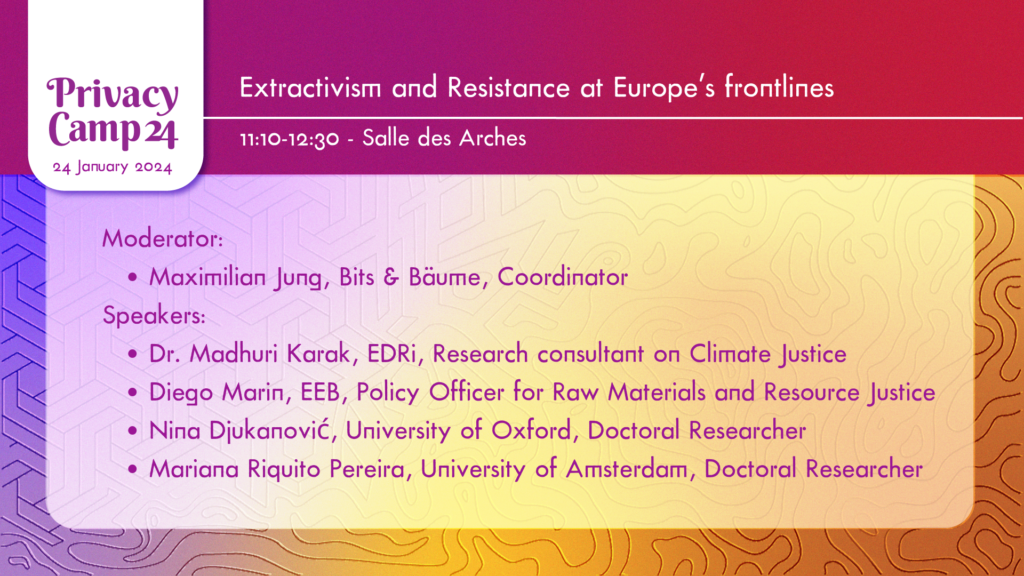
“Digital technologies are and must remain a positive force for climate action,” European Commissioner Thierry Breton underscored at COP26 in Glasgow two years ago. Since then, the ‘twin transition’ has consolidated into a policy framework for tech-powered solutions to the climate crisis without compromising on economic growth. In the same vein, popular, business-driven imaginations depict digital technology and infrastructure, such as the cloud, as increasingly dematerial. However, as critics across civil society and community organizations continue to point out, technical solutions still require the extraction of planetary resources. Instead of fossil fuels like coal, oil, and gas, ‘green’ and digital technologies require ‘critical raw materials’ whose supply and use are neither sustainable nor green.
The EU’s proposed Critical Raw Materials Act (CRMA) lists 34 materials that are strategic components of the region’s climate and digitalization goals for the next three decades, and most of these are currently imported from non-EU countries, notably China. In this context, onshoring mining projects into the Union has sparked off debates over the high social and ecological costs this search for resource self-sufficiency will inevitably incur. Finally, critical raw materials mining is concentrated in comparatively underdeveloped parts of the Union, which entails tensions between local communities who want investment from mining, and more urbane concerns over environmental degradation.
This panel will begin with an analysis of the twin transition’s extractivist foundation (Madhuri Karak), followed by a discussion of civil society efforts to reduce raw materials use targets (Diego Marin). Then turn to ongoing anti-mining community mobilizations in Serbia (Nina Djukanović) and Portugal (Mariana Riquito Ribeiro), the challenges they face in doing so and the possibilities for digital rights practitioners to get involved against extractivist projects. As a panel, we hope to use this time together to reflect on advocacy strategies that can connect the climate action and digitalization rationale behind CRM mining more explicitly.
Moderator:
- Maximilian Jung, Bits & Bäume, Coordinator
Speakers:
- Dr. Madhuri Karak, EDRi, Reseach consultant on Climate Justice
- Diego Marin, EEB, Policy Officer for Raw Materials and Resource Justice
- Nina Djukanović, University of Oxford, Doctoral Researcher
- Mariana Riquito Pereira, University of Amsterdam, Doctoral Researcher